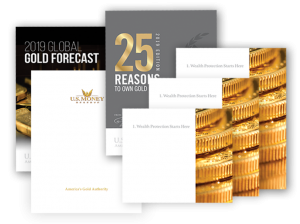A study reported by the American College of Financial Services analyzed the timing of investment shocks in the “Risk Zone,” which they identify as the final ten years of working life and the first 10 years of retirement.
Are You in the Retirement Risk Zone?- Video Transcription
Coy Wells : 00:00
A warning for baby boomers: a study reported by the American College of Financial Services analyzed the timing of investment shocks in the risks zone. Which they identified as the final 10 years of the working life, the accumulation phase as they would call it. And the first 10 years of retirement, the de-accumulation phase. During these years, the nest egg balances tend to be at their highest and retirement dollars are at their most vulnerable point to loss. Particularly with respect to an economic shock like the market collapse or a downturn in the market. A retirement income study concluded that when the shock occurred at a 20 year of the 40 year savings period, the terminal wealth at that time of the retirement decreased by 16 percent. However, when the shock occurred at the point of retirement year of 40 year saving phase, your retirement terminal wealth decreased by more than 24 percent. This is an unprecedented warning issued by baby boomers or to baby boomers and pensions.
Coy Wells : 00:57
The portfolio strategist, Ron Sirs. Recently, he wrote this in the nasdaq.com article, that 75 million Americans now are sitting in the risk zone. They could be sitting on a powder cake based on the history of the previous U.S. stock market crash. Investors who are currently entirely sitting in the stock market could lose as much as 80% of their entire savings. If the 1929 or the 2001 crash would to repeat, that's exactly what they'd see. Today, what we're talking about, is the same thing that we've talked about in the past. The majority of baby boomers and the majority of those who make money today, have their money sitting in a stock market. The reason for it is real simple, most of us don't have the ability to put our money in other sectors of the market that allows them the ability to make money. The banks aren't paying us any money and right now if you're watching the news, they're telling us that the housing market is starting to slip again.
Coy Wells : 01:48
The primary indicators. We know that some of the big stock companies that are holding. Caterpillar, Caterpillar is an indicator. Home depot also just recorded negative earnings. When you see home depot and Caterpillar start losing on their earnings, it's an indication that we're starting to enter a slowing economy. This is also the same thing that Jerome Powell discussed two or three days ago on every major news station when he made his speech, that in 2019 we are going into a slowing economy. So click on the link below. Download our latest report, ‘the gold IRA, protection in the risk zone'. You can also get a copy of our other reports as well. And if you're watching us from YouTube, subscribe to our channel so you don't miss a single episode. For U.S. Money Reserve, I'm Coy Wells and thank you for watching U.S. Market Insights.





![[VIDEO] Here’s How Much Gold Is in Your Body: Did You Know? Video](https://www.usmoneyreserve.com/wp-content/uploads/2020/12/howmuchgoldisinyourbody-e1607717482128.jpg)

